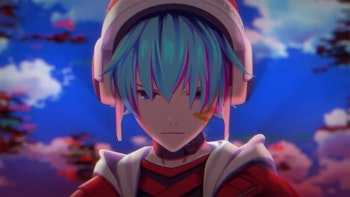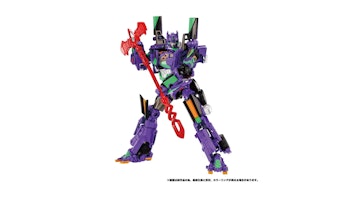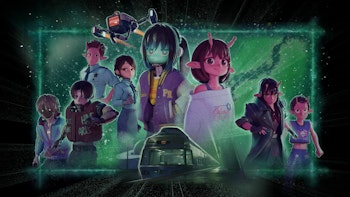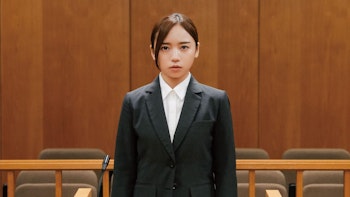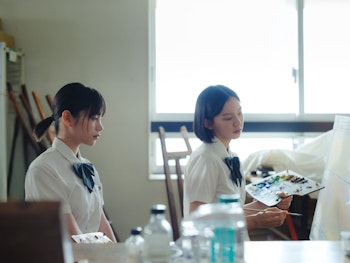
This is Demon Slayer’s world, and we’re just living in it. If Mugen Train propelled an already-popular series to new heights, the initial record-breaking success enjoyed by the latest film in the franchise upon its recent release in theaters in Japan is a statement of intent. With Demon Slayer: Kimetsu no Yaiba Infinity Castle Part 1, Koyoharu Gotouge’s story has elevated it from a phenomenon to a shared Japanese monocultural touchstone, and the defining series of a generation.
There’s not much to say about the success of Demon Slayer that hasn’t already been said. While the manga already had a decent following prior to the anime’s initial broadcast, a broader audience being introduced to the series with incredible animation from the talented team at ufotable, all amidst a blossoming of interest in anime internationally as more series were also breaking into the mainstream domestically, propelled the franchise to unprecedented heights. Without oversimplifying events, though anime was always popular, the virality of Demon Slayer ushered in the industry’s explosion into the global pop cultural mainstream landscape.
The release of the Mugen Train film in cinemas at a time audiences craved the big-screen experience with little competition in the depths of COVID in 2020 propelled an already-successful film to becoming highest-grossing film of all time at the Japanese box office. Yet beyond fortuitous timing and monetary success, it’s easy to forget that aside from monetary returns, the film also transformed the industry, shaping it around its cultural impact. Franchise anime films, particularly shonen adaptations, were non-canon novelties for diehard fans, complimented by occasional original films with broader appeal. This was a canon tentpole event, capitalizing on hype and growing interest in anime for incredible results.
Now, everything from Haikyuu!! to Jujutsu Kaisen to Chainsaw Man have followed that movie formula, and anime films routinely dominate the highest-grossing film lists every year. Though a rising tide has certainly benefited the entire industry, it’s fair to say that no series comes close to Demon Slayer.
If Mrs. GREEN APPLE are the undisputed monogroup beloved by all quadrants of the Japanese population in music, Demon Slayer is the monoseries within anime and manga. Just because the sheer inescapable marketing and cultural dominance from around the time of the 2020 film’s release proved inevitably unsustainable doesn’t mean interest in the series diminished to any noticeable degree. The series has earned an ever-present cultural icon status beloved by all ages seen by the likes of One Piece, Doraemon, or Detective Conan, albeit with a somewhat more bloody source material.

Buildup to Demon Slayer: Kimetsu no Yaiba Infinity Castle Part 1’s release was joined by a multi-month campaign of recap movies and a re-release of Mugen Train that, while each film wasn’t breaking records, was still a strong revenue stream with each entry hitting the top 10 upon release for things you can watch with ease on streaming and everyone is now intensely familiar. Never mind all those cross-promotional collaborations.
Of course the theatrical release was going to be a major event, but even then the scale is difficult to comprehend. After 24 theaters nationwide sold out midnight screenings for the film - a rarity in Japan unlike other countries only reserved for very rare occasions as seen with recent Detective Conan movies - most multiplex cinemas dedicated over 50% of their screens to the film while still struggling to keep up with demand. Inevitably, it broke the record last set by Mugen Train for the strongest opening-weekend sales at 5.52billion yen, rising to 7.31billion yen including the Monday holiday.
The number is half of the total haul of the latest Detective Conan film and already surpasses the returns for the highest-grossing live-action film of the year to date, a surprise word-of-mouth hit in Kokuho that has so far earned over 6.8 billion yen.
If Mugen Train ushered in the new era, Infinity Castle is solidifying it. This is the victory lap for a piece of art that rewired the media landscape. Nothing said here by me or any other critic will stop this film being the cultural juggernaut it is inevitably set to become. That still doesn’t relieve it of criticism. Infinity Castle is a bare minimum in kicking off this final arc, stumbling where Mugen Train felt enhanced by the creative choice and use of film as a medium to enhance its narrative arc.
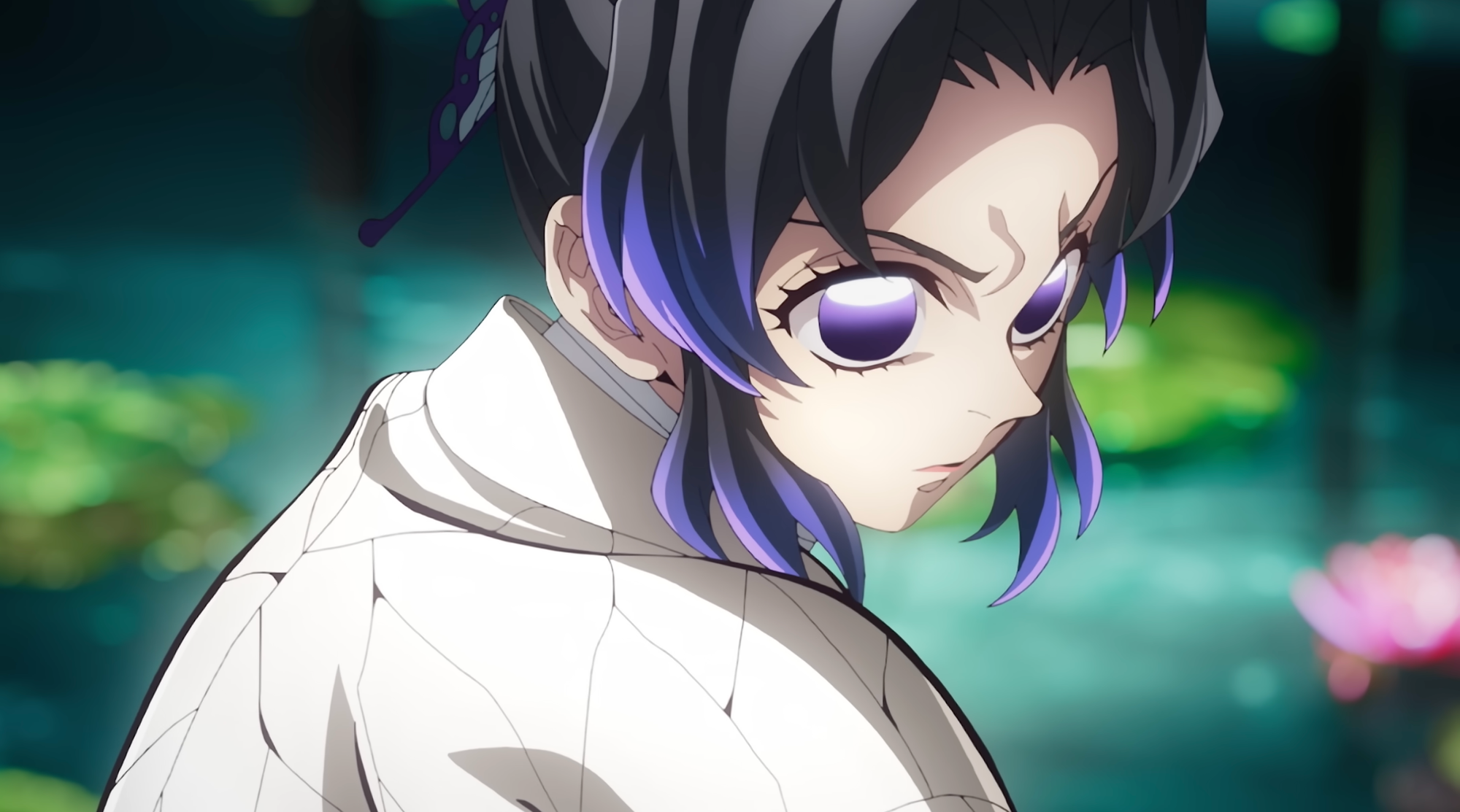
With many of the demon’s defeated this movie essentially marks the beginning of the final battle against the Demons by the Demon Corps. The Hashira had hoped to defeat the leader Muzan in their last battle, only to see the group divided as they fall disorganized into the maze-like endlessly-shifting Infinity Castle, home of their enemy. They search for each other and Muzan in the hope of defeating the Demons once and for all, but the remaining high-ranking demons lie in wait to pick the disheveled bunch off one by one. The film’s issues are not in its concept, but execution.
This is a film eager to please. Those looking for a faithful adaptation of the arc will find that delivered with flair and almost-without pause throughout the movie’s exhaustive 157-minute runtime, rushing breathlessly from fight to fight. Zenitsu and Shinobu get the chance to shine most prominently here in solo fights against some of the most imposing demons to date, a chance for their story arcs to crescendo in style in some creatively-staged and stunningly-animated sequences. The company’s careful use of visual effects to enhance the visual art of its animators is unmatched, and it allows for every breathing technique, swipe of a blade and drip of blood to render in stunning clarity. Tanjiro gets relatively less time on screen, by comparison, but his rematch with Akaza is tense.
At least, it’s tense to a point. Mugen Train’s success is something I put down not just to the factors mentioned above, but because the film was an entertaining experience for fans and newcomers alike, and was elevated by its chosen format. Anyone could get engrossed in the fluid action and a story that, while clearly a part of a broader mythos, was self-contained enough to allow it to release in the US and attract even newcomers. Importantly, it felt like a film, not a chunk of a larger series or a compilation of episodes, taking advantage of the medium’s narrative structure to become something greater than the sum of its parts.
The reasons to turn this grand final arc of the manga are obvious, allowing for both a big-screen celebration and lucrative send-off to a titanic series, but it doesn’t compliment the story in the same way. This is a film where the creases of the manga cliffhangers are painfully apparent, where a formula of fights and flashbacks without reprieve are more forgivable when a weekly release schedule and piecemeal consumption of the story offer a rest from the repetitive nature of this movie.

There’s no escape. Whereas the first fight involving Shinobu and Doma is enthralling, his sadistic and creepily-caring persona chilling to behold and elevated by contextual flashbacks, watching this formula repeat three, four, five times without giving the audience time to reflect, digest or grieve leaves it soon wearing thin. The drilling electric guitar demands emotions in ways that feel manipulative rather than earned.
The expectation is that fans will know the story and merely want to see the results of these events in motion, a departure from Mugen Train. Franchise success has reined in ambition and storytelling for fan service and checkboxes.
Infinity Castle isn’t a bad film. But it’s nowhere near the heights of the prior entries in the series, and the fact it’s a very long part one in a trilogy with a long way to go. It’s a titan. But it’s also exhausting. Demon Slayer is making itself known on the big screen, but it’s been far better than this.

